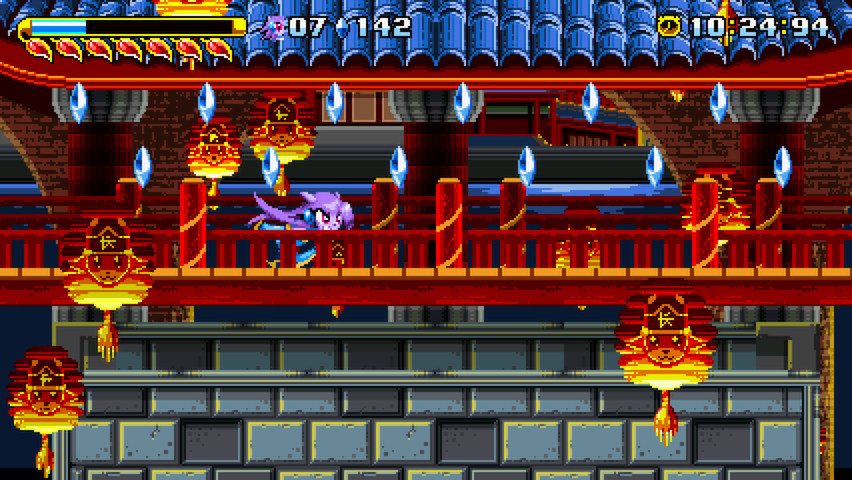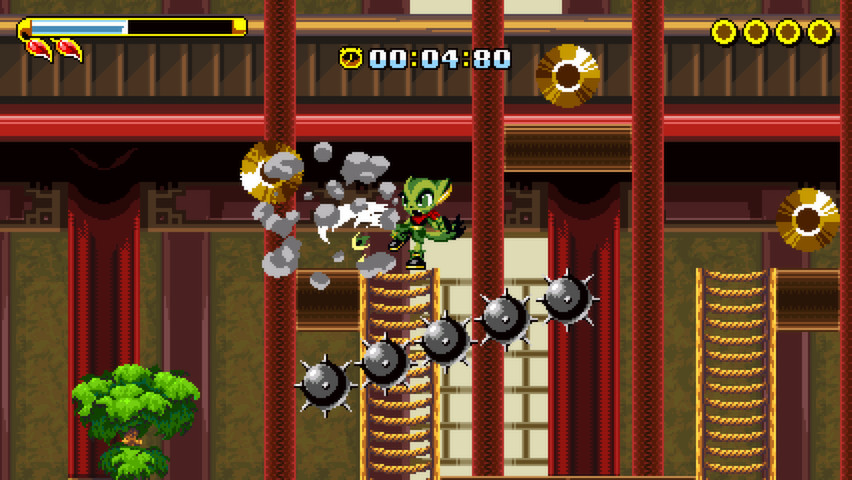Freedom Planet - Review
Despite dozens of games and a legacy spanning decades, Sonic The Hedgehog’s popularity has always puzzled me immensely. He’s one of gaming’s most iconic characters (whose fan devotion can take on an almost religious feeling in some circles), a cultural icon, and still the stalwart face of Sega so many years later. Yet, I’ve never been able to understand how he became that, and continue to be so incredibly popular even today. His recent offerings have been almost unanimously panned, fans reminiscing about the good ‘ol days of the Sega Genesis, and yet going back to those original games I become even more confused. The controls feel loose, the level designs seem to work against the mechanics, and everything feels like it’s almost intentionally undercooked so as to keep the spotlight on its lead. I’ve tried for years, dipping into nearly every “golden era” Sonic game repeatedly, and have always come away unimpressed and confused as to what it is I’m not seeing that everyone else is. Is it just nostalgia? I’d like to think not.

At this point you may be wondering if I’ve accidentally published the wrong review, but I feel it important to talk about my feelings toward Sonic before I can discuss Freedom Planet. I try to stay away from relying on direct comparisons between games in my reviews, but Freedom Planet is such a direct response to the cries of Sonic fans for Sega to bring him back to the 16-bit era that it would be almost disingenuous not to mention how it relates. It’s also important because it’s the first time I’ve been able to see what it is about this formula that people love, and for a moment make me sad it’s been underserved for so long.
It’s in the way the game moves, speedily and in every direction, characters zipping through loop-de-loops and scaling walls, all while cheekily shrugging it off as no big deal. The way level designs build upon themselves provides a sense of discovery whether you bounce up onto a hidden ledge, or miss a jump and fall within a secret passage. Momentum is built into the levels themselves, and watching it all fly past at a speed you can barely keep up with is intense and delightful. Give it a brilliant chiptune soundtrack and it’s an easy task getting in the zone and forgetting about the minimal input required to get through many levels.
It was a wonderful handful of stages, but then I hit upon the same thing that had turned me off Sonic in the past, and by extension was now eating away at my enjoyment of Freedom Planet. In a consistently tragic fashion, Freedom Planet’s level designs begin a war with its mechanics. It’s a game best served going as fast as possible, and yet after the first few levels it insists on slowing you down constantly, whether to fight enemies, solve tedious puzzles, or retrace your steps to find keycards and the doors they go in. As soon as Freedom Planet slowed down the moment was broken, and I began to aggravatingly fiddle with the slippery platforming controls and awkward attacks.

In any other game this sort of self-destruction would be disappointing, but in this case it’s doubly so because it’s the same problem Sonic has suffered from for so long. Even when he’s not the star, it would seem his problems follow anyway, in an almost poetic commitment to making a game that as closely mirrors its inspiration as possible, for better or worse.
This happens again in a less disastrous, almost amusing way, with how Freedom Planet has adopted not only Sonic’s mechanical design but also its narrative aesthetic that has become overly present in more recent games. There’s an inordinate amount of exposition in Freedom Planet, all of it overdone and melodramatic, stretching a convoluted plot across a needlessly large cast that mostly exist for the sake of boss fights. It’s not that the story is bad though that gets me, it’s that it’s a Sonic story with new faces. The writing has the same self-indulgent elongation and fabricated self-awareness that reads like a rejected cartoon, though at least unlike Sonic the voice acting is shockingly almost competent. I’m not ashamed to admit at times I was almost on board with its nonsense, for which the voice work is solely responsible.
None of this makes the story good, but in this context it’s at least understandable? Maybe expected, even. Where Freedom Planet’s mechanics made me sad with how true they stayed to form, I couldn’t help but just be amused that developer Galaxy Trail had managed to copy the Sonic everyone would like to forget, and merge it with the one everyone but myself loves. It sort of makes me hate myself for not being able to enjoy Sonic and its contemporaries, because Freedom Planet clearly loves the franchise immensely and does its best to carry the torch Sega dropped some time ago.
Final Word
Whether it’s a torch worth picking up again will probably depend entirely on how you feel about Sonic, and how much you want to revisit his Genesis days in a new form. In that sense it was probably predetermined that Freedom Planet was never going to be my thing. I wanted it to, like I wanted every Sonic game I struggled through to be, but its problems are impossible for me to look beyond. I can only assume they aren’t seen as issues in many people’s eyes, but I can only speak for myself, and continue wondering why I feel like the only one stuck on the outside looking in at all the fun others are having.

